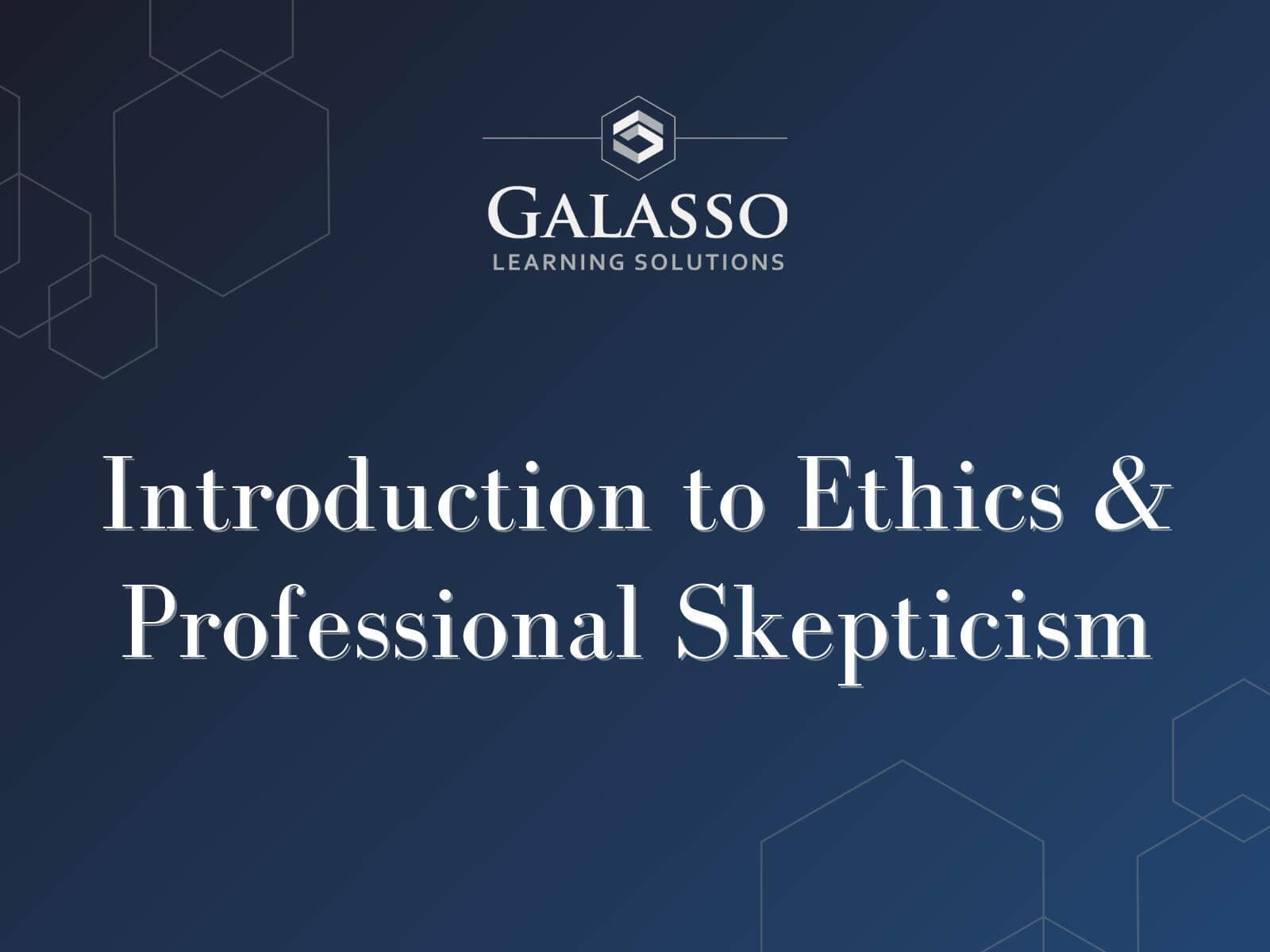Introduction to Ethics & Professional Skepticism
Ethics and professional skepticism are the foundation of public accounting, guiding auditors in maintaining integrity, objectivity, and independence. This course provides a deep dive into the Code of Ethics for Professional Accountants, ensuring practitioners understand their ethical responsibilities and how to navigate complex ethical dilemmas. During this course, attendees will explore the five fundamental principles of ethics, the conceptual framework for members in public practice, and the various threats to independence, including self-interest, familiarity, and undue influence threats. We will also discuss the three categories of safeguards and how to apply them when faced with ethical challenges.
This course will then transition to professional skepticism and fraud detection, covering the auditor's responsibility in apply skepticism during engagements. Participants will gain insight into the fraud triangle, and how it manifests in real-world scenarios. Through interactive examples, attendees will analyze ethical dilemmas and instances of noncompliance, strengthening their ability to recognize and respond to risks effectively.
Upon completion, learners will be able to:
1. Recognize noncompliance with ethical standards during engagements
2. Recall the five fundamental principles of ethics for professional accountants


